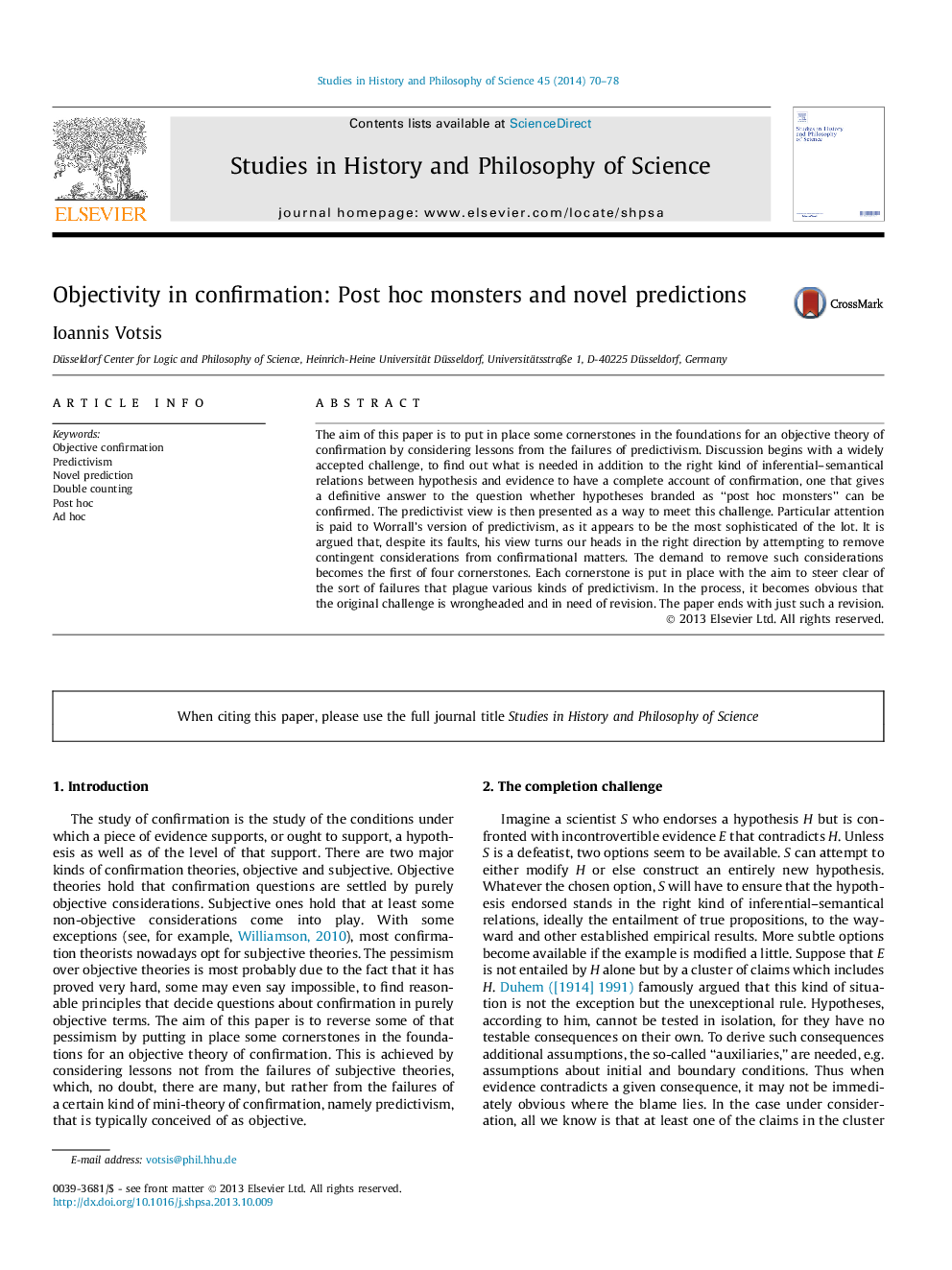| Article ID | Journal | Published Year | Pages | File Type |
|---|---|---|---|---|
| 1160898 | Studies in History and Philosophy of Science Part A | 2014 | 9 Pages |
•In this paper I lay the foundations for an objective theory of confirmation.•This is achieved by considering lessons from the failures of predictivism.•Particular attention is paid to Worrall’s version of use novelty predictivism.•Four desiderata are proposed for an adequate objective theory of confirmation.•The last desideratum tackles the tricky issue of post hoc monsters.
The aim of this paper is to put in place some cornerstones in the foundations for an objective theory of confirmation by considering lessons from the failures of predictivism. Discussion begins with a widely accepted challenge, to find out what is needed in addition to the right kind of inferential–semantical relations between hypothesis and evidence to have a complete account of confirmation, one that gives a definitive answer to the question whether hypotheses branded as “post hoc monsters” can be confirmed. The predictivist view is then presented as a way to meet this challenge. Particular attention is paid to Worrall’s version of predictivism, as it appears to be the most sophisticated of the lot. It is argued that, despite its faults, his view turns our heads in the right direction by attempting to remove contingent considerations from confirmational matters. The demand to remove such considerations becomes the first of four cornerstones. Each cornerstone is put in place with the aim to steer clear of the sort of failures that plague various kinds of predictivism. In the process, it becomes obvious that the original challenge is wrongheaded and in need of revision. The paper ends with just such a revision.
